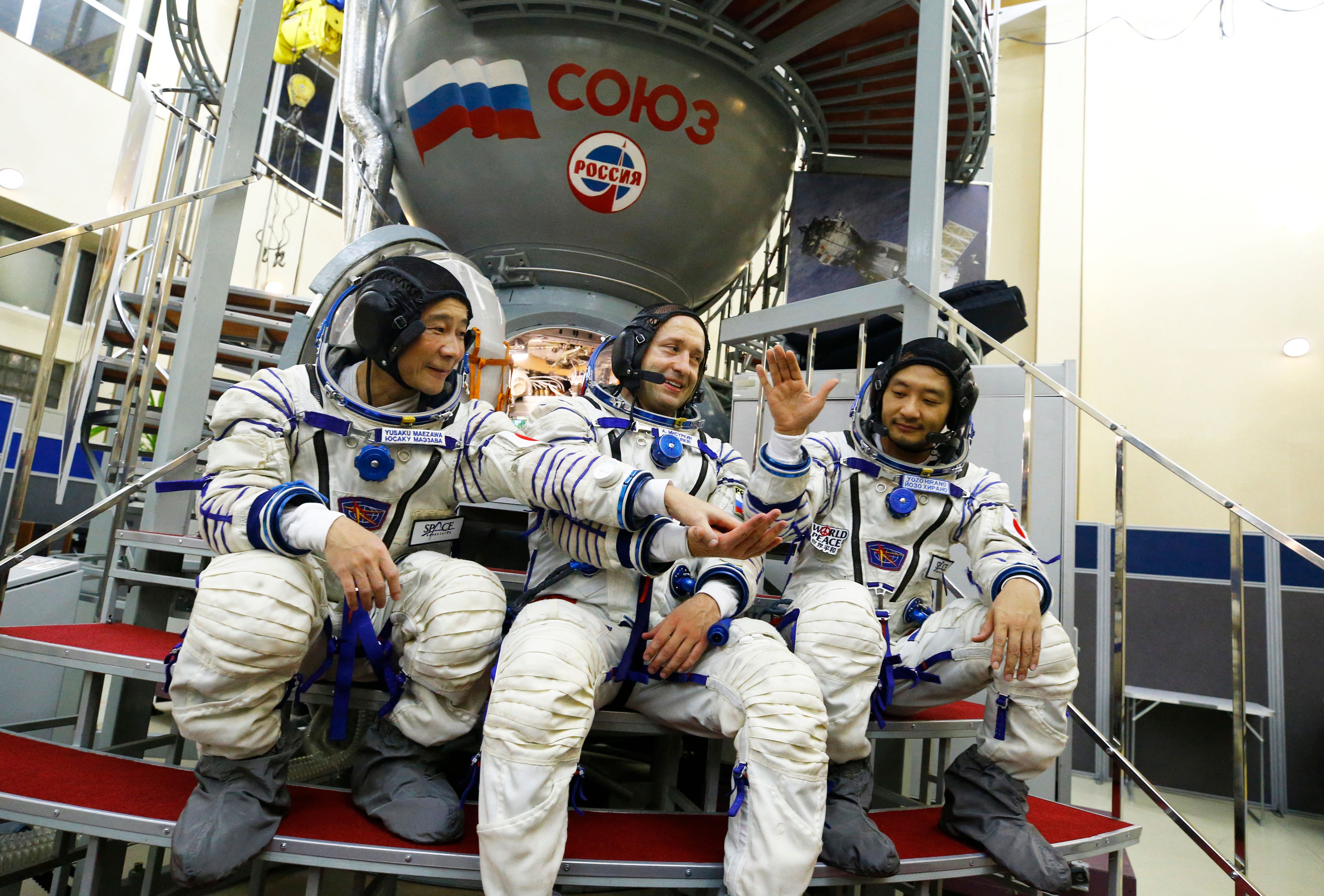Japanese billionaire space tourist returns to Earth after 12-day stay on ISS
The tourists documented their daily life aboard ISS on YouTube and participated in research experiments

Your support helps us to tell the story
From reproductive rights to climate change to Big Tech, The Independent is on the ground when the story is developing. Whether it's investigating the financials of Elon Musk's pro-Trump PAC or producing our latest documentary, 'The A Word', which shines a light on the American women fighting for reproductive rights, we know how important it is to parse out the facts from the messaging.
At such a critical moment in US history, we need reporters on the ground. Your donation allows us to keep sending journalists to speak to both sides of the story.
The Independent is trusted by Americans across the entire political spectrum. And unlike many other quality news outlets, we choose not to lock Americans out of our reporting and analysis with paywalls. We believe quality journalism should be available to everyone, paid for by those who can afford it.
Your support makes all the difference.A Japanese billionaire and his production assistant have returned to Earth after spending 12 days aboard the International Space Station as the first self-funded space tourists to visit the orbiting outpost in more than a decade.
The capsule carrying Russian cosmonaut Alexander Misurkin, along with the space flight participants – online fashion tycoon Yusaku Maezawa and his assistant Yozo Hirano – landed on Earth around 10.1pm EST on Sunday (3.13am GMT on Monday) in Kazakhstan, Nasa noted in a statement.
“The flight of the ‘tourist’ spacecraft Soyuz MS-20 has been completed,” the Russian State Space Corporation Roscosmos said in a statement.
The trio spent 12 days on the ISS, where the Japanese tourists documented their daily life aboard the ISS for Mr Maezawa’s YouTube channel.
Mr Hirano also participated in research designed to increase the understanding of the impact of spaceflight on the human body with important biomedical data collected before launch.
For this trip, Mr Maezawa had booked seats via the US-based company Space Adventures, which arranges rides for wealthy people.
While exact ticket costs are unknown, Space Adventures had said they were in the range of $50m-$60m (£38m-£45m).
On his popular YouTube channel, which has more than 1 million followers, the Japanese billionaire shared several videos of his time at the space station, including one of him eating snacks in zero gravity and another explaining music in the space station.
In one video, which has garnered more than 2 million views, he demonstrated how astronauts use a handheld funnel for “nature calling in space”, to suck urine away. He also showed his followers how to sleep in zero gravity and how to properly drink tea.
The trio’s return marks an end to an eventful year of private space travel missions, in which billionaires including Elon Musk, Jeff Bezos and Richard Branson all made successful tourism flights to the edge of space and beyond.
Following their return, they will undergo a rehabilitation program lasting 14 to 21 days to return to their normal physical form, under the supervision of doctors, Roscosmos noted.
During this rehabilitation period, they would spend time swimming, going for walks, and gradually increasing the load on their muscles, which were subjected to 12 days of weightlessness aboard the ISS, the Russian space agency added.
Mr Maezawa has also booked a trip with Elon Musk’s SpaceX for a journey to the moon set for 2023 – expected to take three days to fly to the moon, loop behind it in orbit, and then spend three days returning.



Join our commenting forum
Join thought-provoking conversations, follow other Independent readers and see their replies
Comments